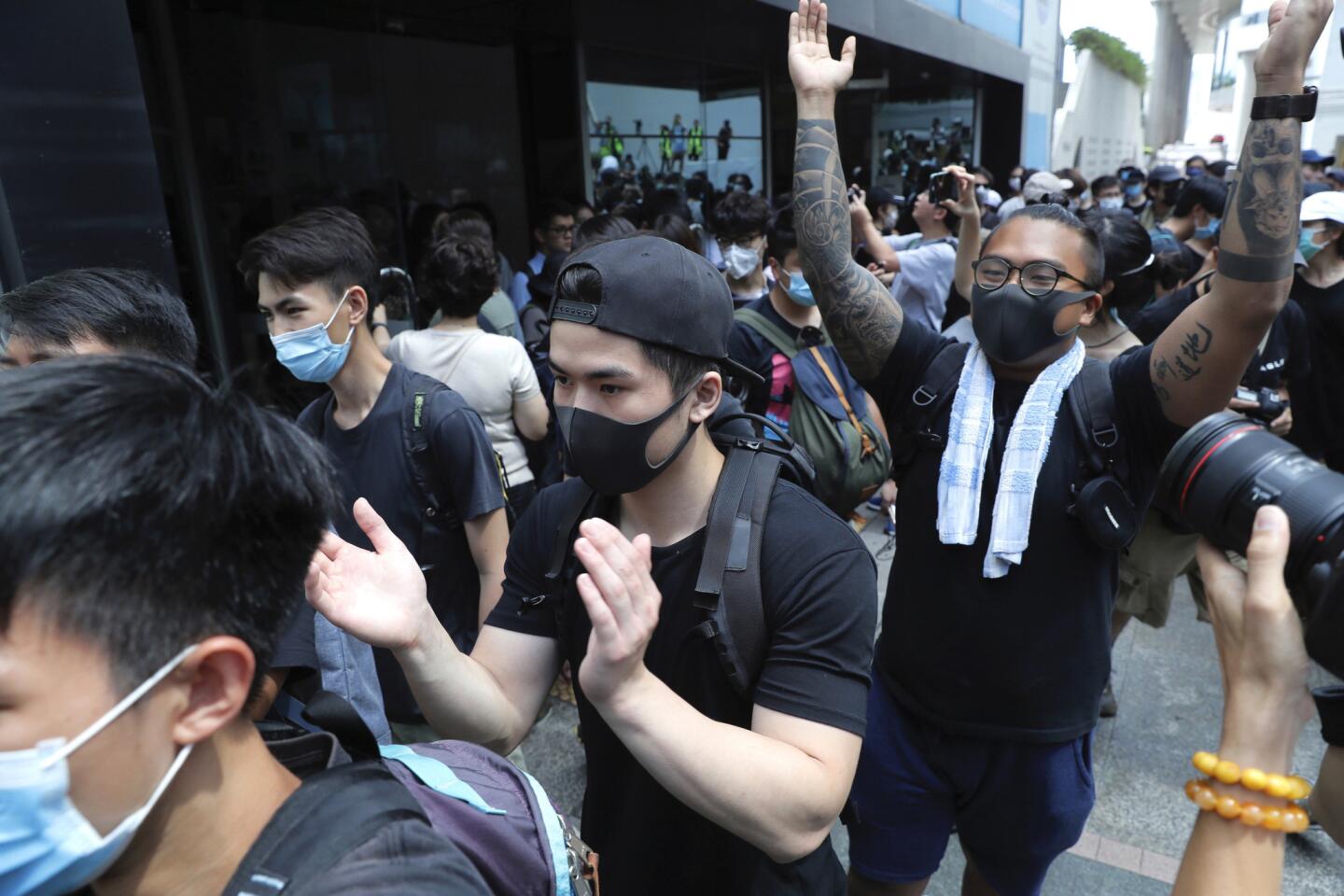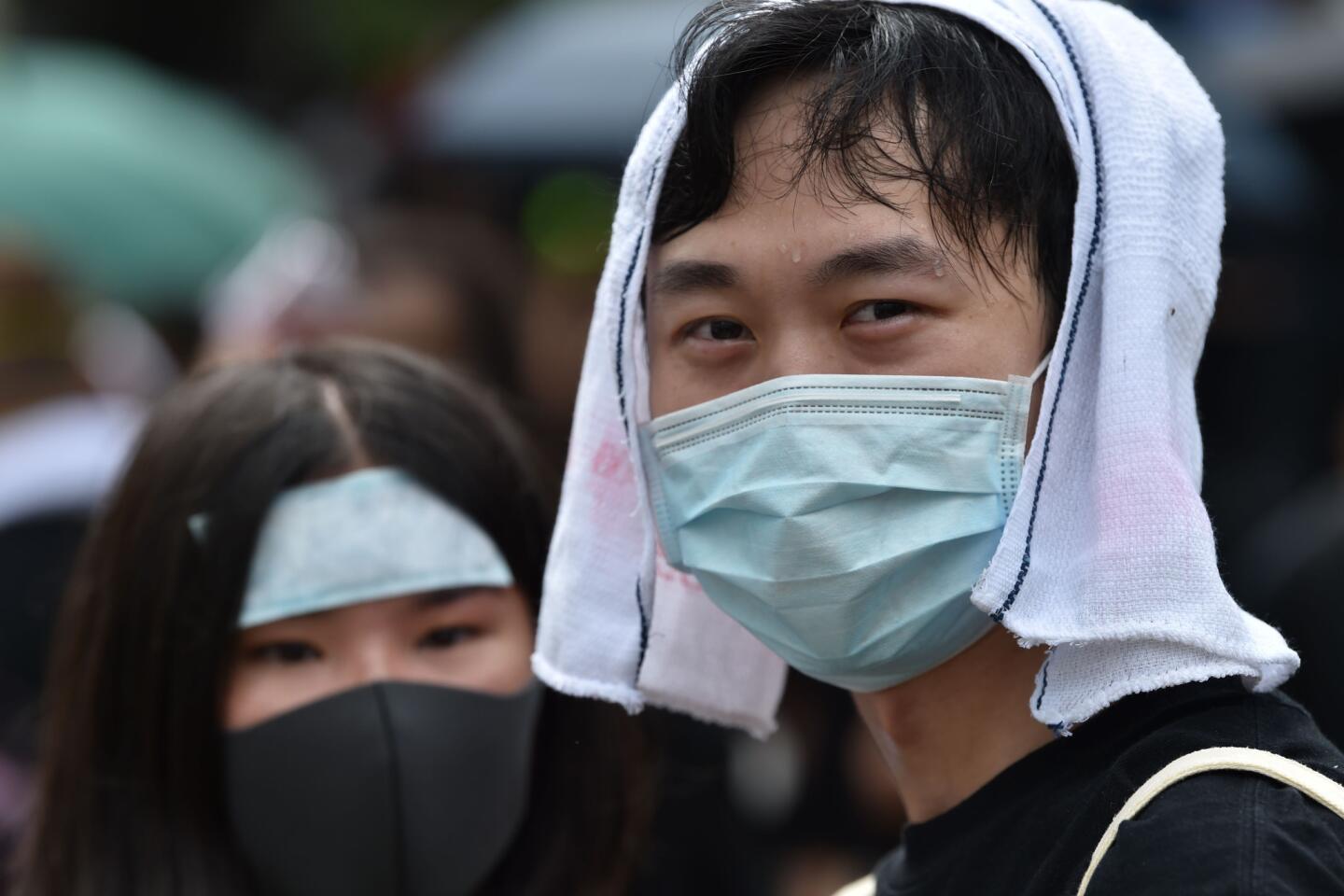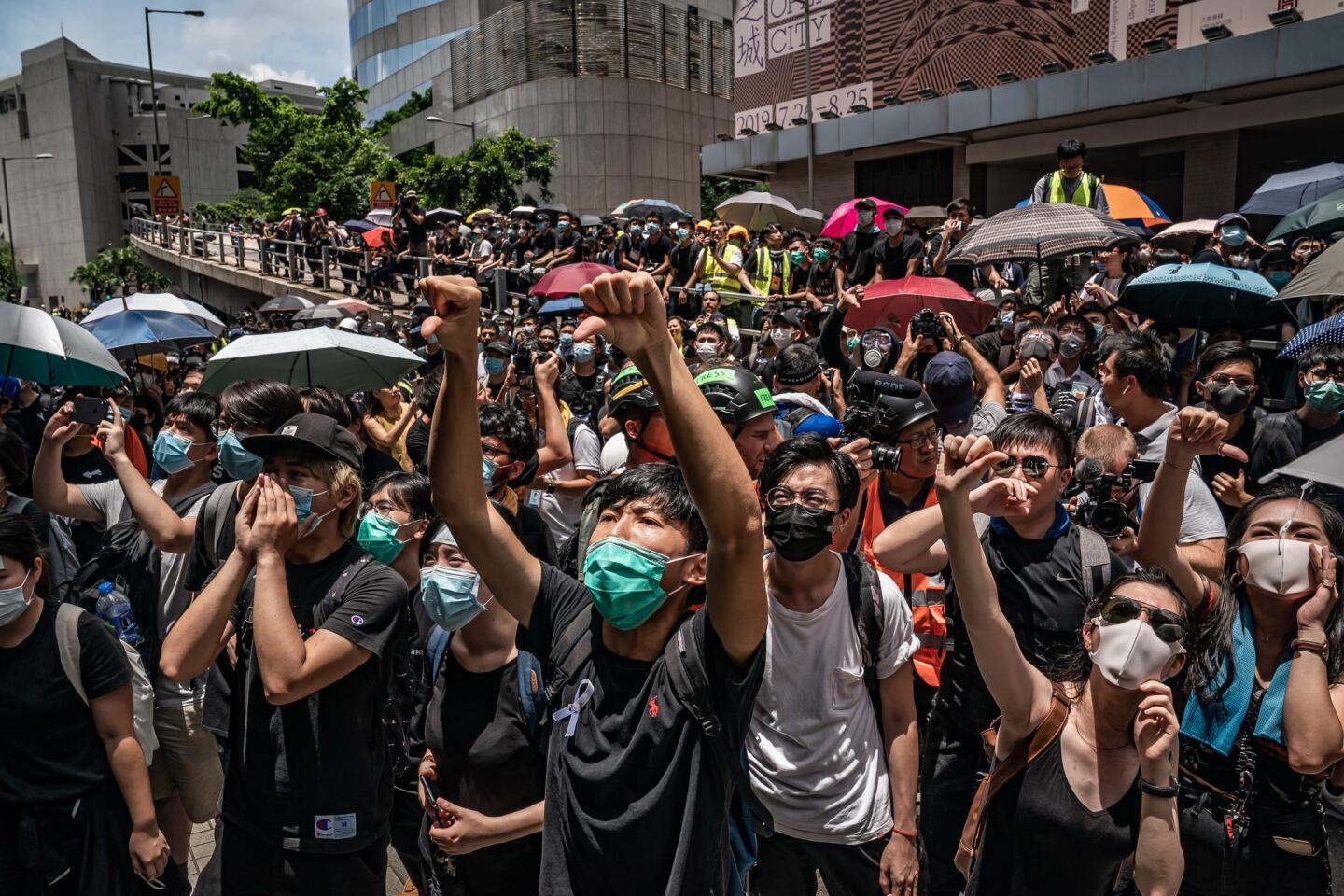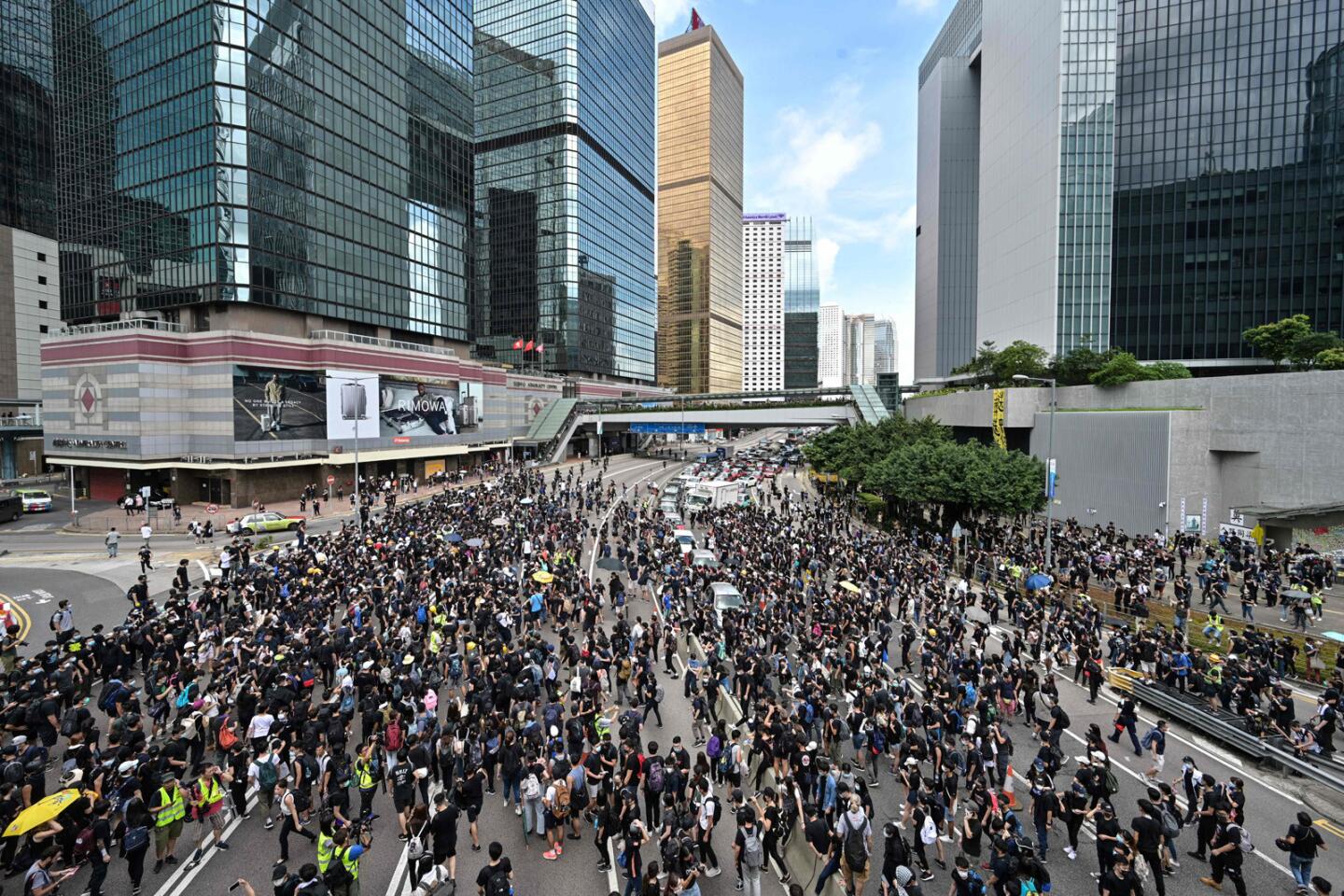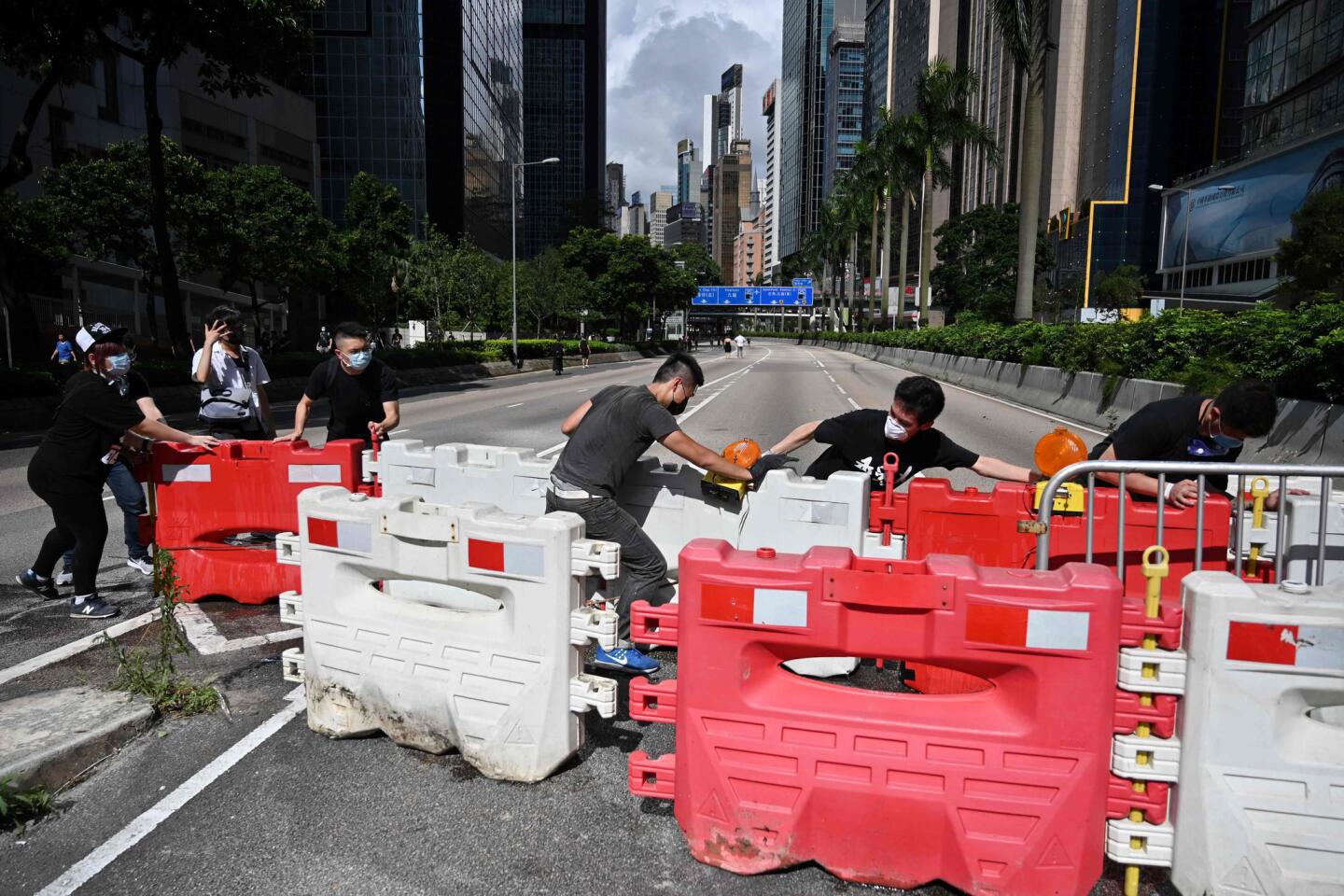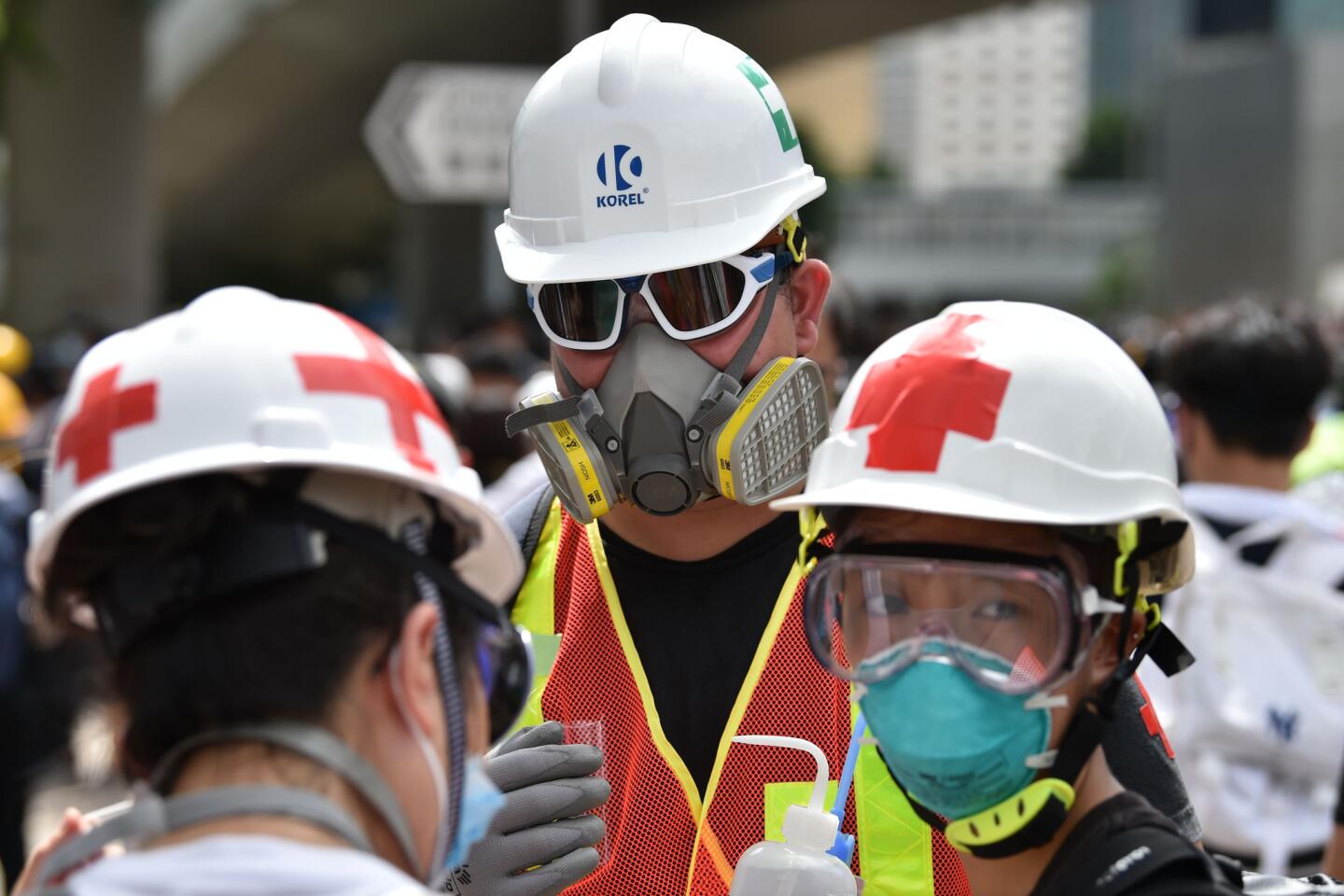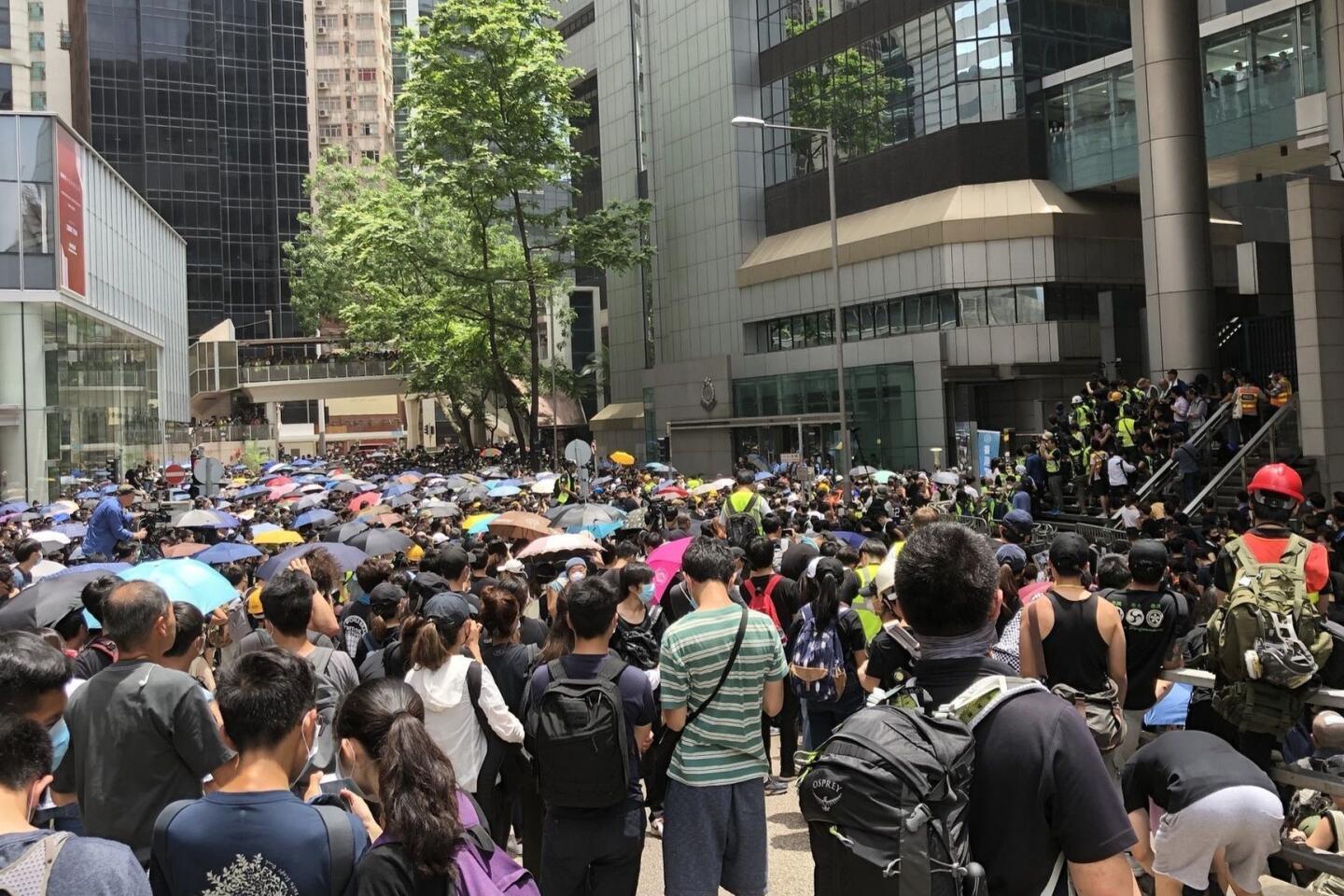Thousands of Hong Kong protesters flood the streets again, this time targeting police
- Share via
Reporting from Hong Kong — For 15 hours, thousands of demonstrators surrounded police headquarters here, making clear that a protest movement launched in response to an unpopular extradition bill was turning its growing political power against the embattled force.
The tense standoff under sweltering tropical heat ended peacefully around 2:30 a.m. Saturday when the crowds thinned out and police were able evacuate their personnel through a side entrance onto buses.
The protest started a day after student groups demanded Hong Kong Chief Executive Carrie Lam fully retract the extradition bill, which many viewed as a threat to the city’s autonomy, and open an independent investigation into the use of violent tactics by police during a June 12 demonstration that drew 2 million opponents of the proposed legislation into the streets.
The Hong Kong government issued a statement Friday evening local time that did not address the protesters’ demands but did say it respected the public’s right to procession and assembly.
“The protests today caused much inconvenience to the community by disrupting traffic and many public services,” the statement said, urging protesters to act “peacefully and rationally.”
Lam suspended the bill, which would have allowed Hong Kong to send people to China for trial, last Saturday. She issued a public apology at a news conference Tuesday that was widely dismissed by critics. An independent investigation wasn’t necessary, Lam said, because existing channels for complaints already exist.
Demonstrators outside police headquarters in Wan Chai, a few minutes walk from the government offices that served as the main target of protesters, said they were there because Lam’s response wasn’t satisfactory. Barricades were erected several blocks away, forming a perimeter that complicated any plans to send police reinforcements.
“They’re trapped in their headquarters,” said a 43-year-old demonstrator who would only give his first name, Mario, for fear of being identified by authorities. “It’s humiliating for them and it’s encouraging for us.”
All entrances to the compound were blocked, including one gate that was surrounded by demonstrators singing to police, “Sing Hallelujah to the Lord,” the unofficial protest hymn of the last two weeks.
At another entrance, a police van filled with officers was surrounded and blocked from leaving.
Fernando Cheung, a legislator for the opposition Labor Party, tried to persuade the protesters to let the police go.
“The crowd did not agree,” said Cheung, who acknowledged that the lack of leadership within the protest movement made conditions more volatile. But he ultimately blamed the police and Hong Kong’s government for the conflict.
“They failed to answer the call of the people,” he said. “They are hiding in their offices and the crowds are still very angry.”
The police van was allowed to leave later in the afternoon.
Once known as ‘Asia’s finest,’ Hong Kong police now stand accused of brutality »
Hong Kong’s police have kept a low profile on the streets of this city of 7 million since they were scorned for firing tear gas, rubber bullets and beanbags while also clubbing unarmed demonstrators with batons June 12. Their conduct helped galvanize the massive turnout Sunday.
Amnesty International identified 14 cases of excessive use of force by police June 12, it said in a report released Friday.
“The use of force during the protest violated international human rights law and standards,” the group said.
The police union say their members have been subjected to harassment while off duty. One online forum has been compiling social media posts of police officers, including family photographs. Other police are reportedly frustrated over being thrust into the middle of a political problem the government appears incapable of resolving.
Friday’s protesters were mostly people in their 20s and teens. Almost everyone was dressed in the customary black for solidarity. They threw eggs, hurled epithets and flashed middle fingers at the police staring at the crowds behind their compound’s walls. Some officers could be seen dressed in protective riot gear and carrying shields. Protesters called out for Police Commissioner Stephen Lo, who was believed to be inside the building.
A police negotiator on a public address system was drowned out by the throngs chanting “release them” — a reference to five June 12 protesters charged with rioting.
Joshua Wong, the most recognizable leader from the pro-democracy Umbrella Movement protests of 2014, addressed the crowds by leading them in chants demanding that police open their gates.
By midafternoon, the protests spilled over to the nearby internal revenue offices, blocking employees from returning from their lunch breaks. The demonstrators eventually gave way and even helped visitors file their tax returns in a deposit box.
Despite the standoff, there was a festive quality to the protests. At times, it felt like a potluck with demonstrators passing around boxes of doughnuts, dim sum and muffins.
As the day drew on, more roads in Wan Chai were closed to traffic. By evening, members of the crowd began donning helmets, goggles and face masks in anticipation of a tear gas or pepper spray strike by police that never materialized.
“This is a very dynamic situation,” said a 25-year-old demonstrator who would only give his surname, Wan. “We are outraged. And we worry the momentum will go down.”
Wan, a doctor, said he did not know what he thought he could achieve by barricading the police inside their offices.
“I don’t know what’s going to happen,” he said. “We had millions of people come out to protest the last two weekends. And all the government did was hold press conferences and say irrelevant things. They didn’t withdraw the extradition law and they didn’t release the protesters charged with rioting.”
Doris Fu, who said she was in her early 30s and came to join demonstrators after work, worried the protests would become too confrontational and alienate more moderate supporters.
“I hope it stays peaceful and the police can control themselves,” Fu said. “These people aren’t going to stop fighting until they withdraw the bill or Carrie Lam steps down.”
Regina Ip, a pro-Beijing lawmaker, condemned the latest demonstrations, calling them disruptive to both the government and ordinary people.
“I understand [the protesters’] demands, but I think the government has gone as far as possible to accede to them, making an apology,” Ip told the Hong Kong Free Press. “Mrs. Lam has done as best as she could and … the postponement — is an effective withdrawal.”
Special correspondent Tang Wai Yin contributed to this report.
Twitter: @dhpierson
More to Read
Sign up for Essential California
The most important California stories and recommendations in your inbox every morning.
You may occasionally receive promotional content from the Los Angeles Times.
